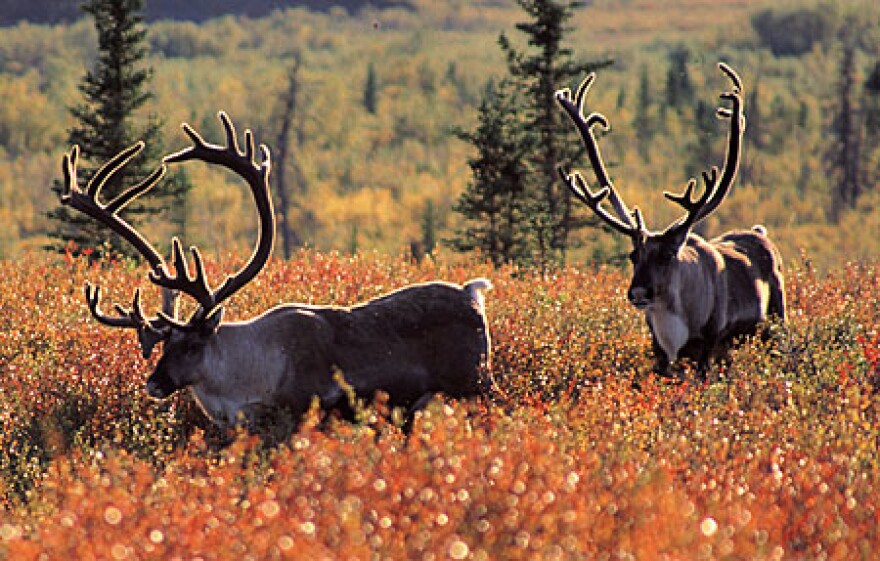Rural Communities in Northeastern Alaska could be left without caribou in the future.
That’s according to a recent study. Scientists believe climate change could increase wildfire potential in lichen-rich boreal forest where the Central Arctic and Porcupine caribou herds forage in the winter. A decline in habitat could mean less opportunity for area subsistence hunters.
University of Alaska Fairbanks Assistant Wildlife Biology Professor Todd Brinkman recently coauthored a study with scientists from the U.S. Geological Survey that shows caribou herds in Alaska’s northeast could lose 21 percent of their winter habitat in the near future.
“They are very migratory, almost semi-nomadic in some sense,” Brinkman said. “So, them moving all over their massive range, isn’t anything new.”
“The new thing with this study is that the proportion of high quality winter habitat is anticipated to decline over the next century.”
The study looks closely at the effects of predicted increasing temperatures and how that may influence the flammability of the forest in Northeastern Alaska and Northwestern Canada. Brinkman says the findings don’t really surprise him
“Well, not super surprised,” he said. “I think we know with increasing temperatures in the Arctic, there’s likely going to be more wildfires, higher severity, more frequent, but what was kind of novel about his work is that we were able to better quantify the extent that boreal forest may be affected.”
Brinkman says changes in caribou distribution in the winter means residents in Arctic Village and Old Crow in Canada’s Yukon will have to become more flexible.
“A lot of these climate drivers are out of local control,” Brinkman said. “So how this study might be of value to local is they can start to think about how they might respond or anticipate a change in local caribou distribution.”
The findings were published in the most recent issue of the journal PLoS One. The research is part of the Changing Arctic Ecosystems Initiative funded by the U.S. Geological Survey.


